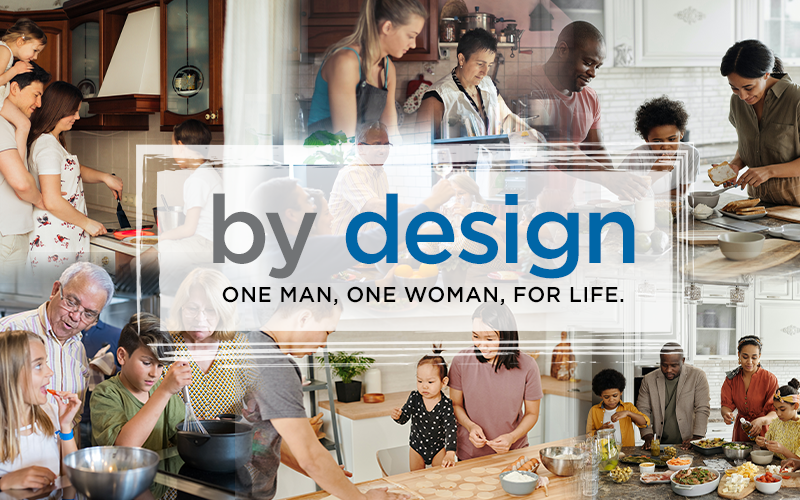Parents, Choose Your Village Carefully
Sign up for a six month free
trial of The Stand Magazine!
Most of us love our kids, right? It’s what parents do.
When I see my children these days it’s a constant reminder of God’s grace. These grown-ups in training got the message. They didn’t reject the message. They apply it daily. Jesus Christ matters to them. He matters also to their spouse and soon-to-be spouse.
There’s no greater sense of relief than knowing that your family will be with you eternally.
There are no guarantees, of course. You can talk, teach, pray, and hope, but ultimately your kids have free will just like you do. So many parents have done all these things, but children have been cool to the gospel or have rejected it completely.
Politics is a secondary consideration. I don’t really like being a “party voter,” since each side has its warts, but it’s how our system has evolved.
The Republican candidate reflects my values an overwhelming majority of the time, and with the ascension of the far-left wing of the other party, it’s nearly impossible to find centrist Democrats.
So at this stage of life, it’s comforting to see the kids got the “other” message too. As with the primary message, it doesn’t always happen that way. And for some reason, it seems to be harder for girls to get the message. A recent study reveals that moms and dads are off the mark if they think an occasional dinnertime reference to inflation and the cost of groceries will raise the next generation of Republican voters. Clearly, it will take more than that dismissive remark on the danger of boys playing girls' sports.
In short, voter values and voter engagement need to be demonstrated lifestyles by parents.
Research by the Survey Center on American Life shows Republican parents are likely to pass on ballot-box values to their sons – but daughters are another matter. The survey found that Democrats and Republicans, generally speaking, pass on their political views with equal effectiveness. But the child most likely to chart a different path is the daughter.
According to the study, 44% of young women who grew up with Republican parents say they are Republicans today. By comparison, 67% of young men raised in a GOP household identify as Republicans today.
"When you get into the details [of the study], the general trend is that if your family is more politically engaged, if children hear their parents talk about politics at the dinner table, if they bring their kids to the polls, if it's a cohesive kind of active political family, whether that's Republican or Democrat, politics is much more likely to be important to the next generation. That was true Republican and Democrat," David Closson, the director for the Center for Biblical Worldview at The Family Research Council, said on Washington Watch recently.
The key word here is “engaged.”
You can’t look at your children and speak their faith – or their politics – into existence.
What really matters to a parent has to be demonstrated – it has to be lived – if it’s going to be passed along.
It’s not important to me that my beliefs continue in the line of succession to create some sort of legacy when I’m gone.
The faith part is important because Hell is real, and it’s not what I want for my kids. I want our family to be together.
My first motivation to accept Christ was little more than fire insurance. I’m not proud of that, that’s just what it was. As I’ve grown in my faith I’ve come to understand more about Christ’s suffering and sacrifice. I’ve come to love Him. I believe we call this process sanctification.
The politics part is important because I see faith and conservative values under assault.
There’s not a lot that I agree with Hillary Clinton on, but the 2016 runner-up got it right when she said, “It takes a village to raise a child.”
It absolutely takes a village. It just doesn’t take a federal government.
There were teachers in their public schools, adults at church, family members, and more who reinforced what my children were hearing at home. I’m incredibly thankful for these people. They were important in my life growing up as well.
Not all of God’s children accepted His demonstration of love. Some He cast out of heaven.
When I think of my children as young adults, there’s a tendency to breathe a sigh of relief and relax, but I know I can’t. There will be grandchildren to come, hopefully. I think of the challenges that my children will face as modern-day parents.
My parent’s generation had to deal with the Devil’s message when you spun your vinyl records backward.
When I think of the parents in years to come, I think we ain’t seen nothing yet.
"Every single cultural institution in this country is a cheerleader for progressive causes and for the values that are pretty much now championed by the Democrat Party. The survey looked at ages 18 to 29. So, this would be kind of the youngest millennials and the oldest Gen Z demographics,” Closson said.
"If you're these young people, and you're hearing values that are taught in the home also reinforced online and in Hollywood, in the movies that you watch, in the music that you listen to [and] in the schools that you go to … The values of progressive politics taught in the home by these Democrat-leaning and -identifying parents are the same values now that are [promoted] by almost every cultural mover and shaker and those who operate the levers of influence in our society."
This is what modern-day Christian parents are up against.
They need help. They need prayer and help.
The first thing parents need to do is model their beliefs and live them for their children.
Help will come. As dire as the situation seems, help is out there.
Christian parents need to live their faith, and then choose their village carefully.
(Editor's Note: For more on this subject click HERE to read an article Parrish wrote for American Family News.)

Sign up for a free six-month trial of
The Stand Magazine!
Sign up for free to receive notable blogs delivered to your email weekly.



















